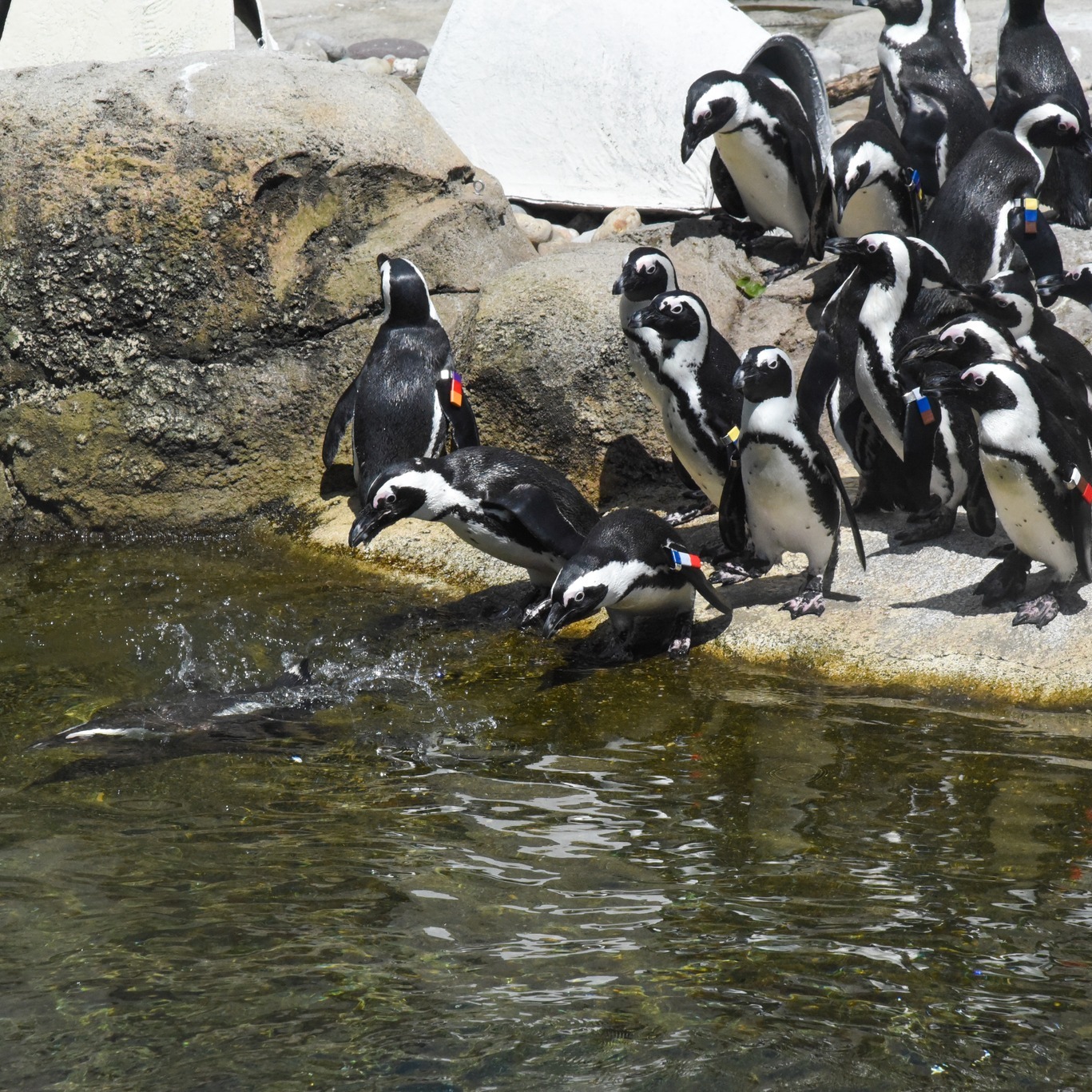- African penguins: a unique species with distinct adaptations and demands in zoo management.
- The role of zoos in conserving endangered species and promoting wildlife biodiversity.
- The importance of special events, such as New Year’s Day at the zoo, for public engagement and education.
- The impact of zoo timings and activities on visitor experience and animal welfare.
- Strategies for integrating conservation education into recreational activities.
African penguins, known scientifically as Spheniscus demersus, are a remarkable species found along the southwestern coast of Africa. This species, also known as the jackass penguin due to its braying call, has adapted brilliantly to its environment. Unlike their Antarctic relatives, African penguins have settled in a temperate climate, making their way of life distinct. Their survival tactics include a unique breeding method and an impressive swimming ability that aids them in their daily forage for food.
African penguins face numerous challenges, primarily due to habitat loss and decreasing fish populations. Their designation as an endangered species highlights the significance of conservation efforts. Zoos play an instrumental role in these efforts. They act as sanctuaries for endangered species, providing a controlled environment where breeding and research can actively contribute to species conservation. Through collaboration with wildlife organizations, zoos help ensure these animals’ survival in their natural habitats.
The countdown is on until the African penguins dive into the new year! This event exemplifies how zoos engage the public while advocating important conservation messages. By incorporating fun events like these, zoos offer an opportunity for visitors to witness the charismatic nature of these animals up close, sparking interest and empathy towards wildlife preservation.
Zoo management faces the challenge of balancing public engagement with animal welfare. Maintaining suitable habitats that replicate natural conditions is crucial. Zoos must create environments where animals can exhibit natural behaviors, which is vital for their physical and mental health. For African penguins, this means providing appropriate water bodies for swimming, which contributes to their well-being. The zoo’s decision to stay open on New Year’s Day reflects a commitment to both education and conservation. This allows the public to gain exposure to these issues while enjoying their leisure.
Visitor experience is paramount in zoos. Operating hours, scheduled activities, and educational displays must align with both visitor convenience and the animals’ welfare. An open zoo on a holiday, such as New Year’s Day, broadens accessibility, ensuring more people have the opportunity to visit and learn. These engagements aid zoos in spreading awareness about conservation efforts and the need to protect our planet’s biodiversity.
To further the cause of conservation, strategic partnerships and the integration of technology in educational programs can be immense. Using interactive displays and virtual reality can engage visitors, particularly younger audiences, in a more immersive learning experience. By experiencing the habitats of African penguins alongside direct educational anecdotes, individuals are likely to develop a more profound appreciation and understanding of conservation efforts. Promoting such interactive approaches aligns recreational activities with essential messages about wildlife preservation.
Zoos also contribute significantly through captive breeding programs. For African penguins, captive breeding provides a supplemental population should wild numbers continue to decline. This practice helps maintain genetic diversity and prepares penguins for potential reintroduction into their native habitats. Coordination with international wildlife bodies enhances these efforts, spreading risk and opportunity globally for these endangered animals.
Educational programs are integral to zoo operations. They play a pivotal role in fostering an understanding of biodiversity and its importance. On-site and outreach educational programs can engage schools and community groups, emphasizing the critical condition of species like the African penguins. By embedding messages of environmental stewardship within these programs, zoos further aid the conservation dialogue. Moreover, awareness campaigns can highlight how simple lifestyle changes contribute to conservation goals, such as reducing energy consumption which directly aids climate control, a factor impacting all wildlife.
Moreover, events like the African penguins diving countdown offer families an enjoyable yet educational outing. They create teachable moments where educators can explain the biological, ecological, and conservation aspects of these lovable creatures. For example, discussing why the penguins are engaging in diving activities can segue into explaining their hunting techniques and dietary needs, linking directly to their environmental challenges.
To maintain their critical missions, zoos evolve continually. They adopt the latest research and tools in animal care to guarantee the highest standards. Keeping abreast of scientific advancements ensures that the health, diet, and habitats of animals such as African penguins are optimal. Conservation zoos share data and discoveries globally, contributing to a collective body of knowledge that benefits wildlife parks worldwide.
As we look forward to events like the African penguins diving into the new year, it’s crucial to recognize the dual role zoos play in entertainment and conservation. They are at the forefront of educating the public about the planet’s ecological challenges while also fostering a love for animals. This approach ultimately aids in securing a future for species like the African penguin, ensuring the survival not just of individual species, but of the ecosystems they flourish within.
*****
Source Description
The countdown is on until the African penguins dive into the new year! 🐧
REMINDER: The Zoo is OPEN on New Year’s Day (1/1) from 10AM – 4PM. 🎉


